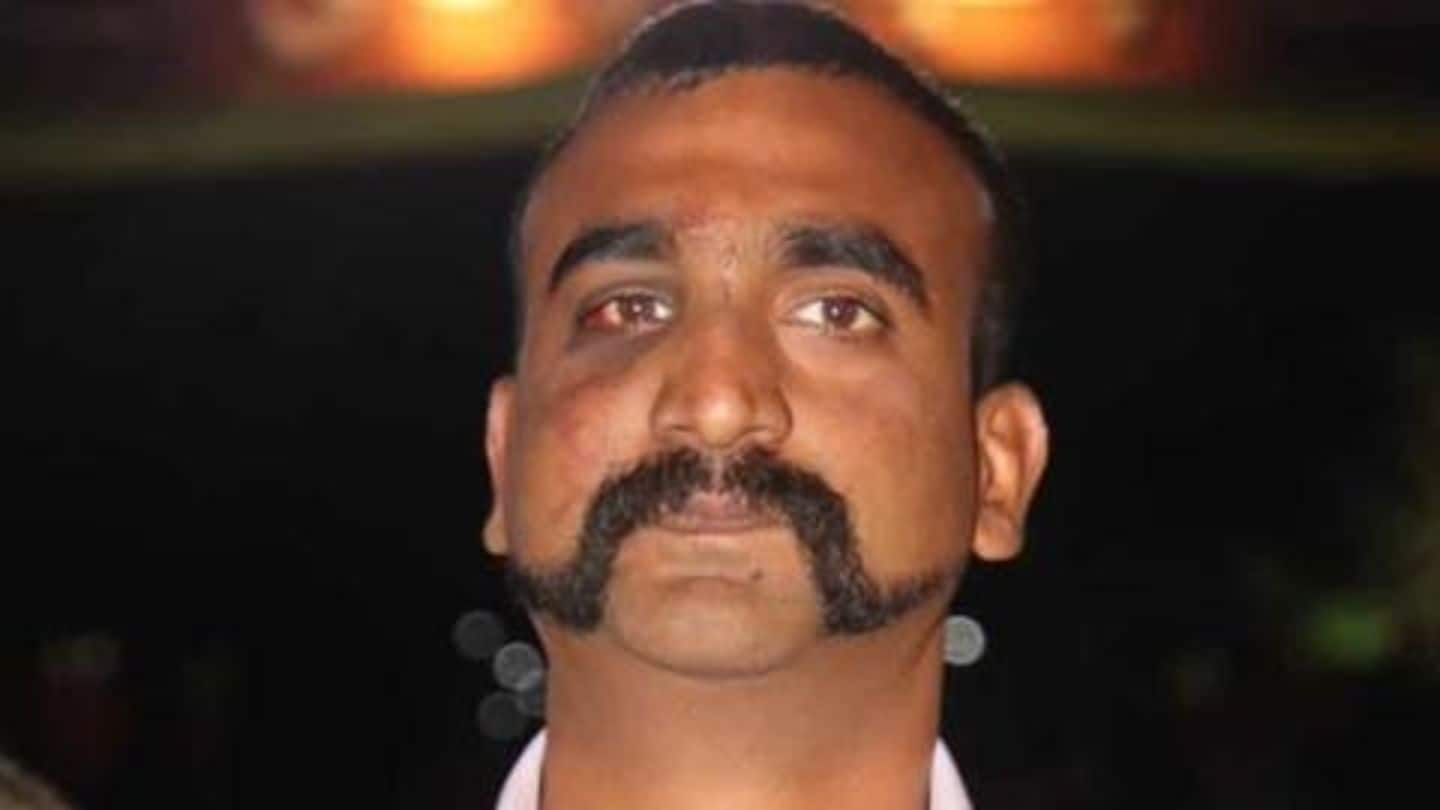
Abhinandan Varthaman was choked, beaten in Pakistan during captivity: Report
What's the story
The first 24 hours of captivity in Pakistan were terrible for Wing Commander Abhinandan Varthaman as the officials from the other side of border tried to extract crucial information from him regarding "Indian troop deployment, high-security radio frequencies and sensitive logistics," reports HT. Abhinandan, however, didn't give information and maintained a stoic stance. The IAF pilot returned home on March 1. Here's what happened.
Context
Backstory: Abhinandan shot down F-16, landed in Pakistan
On February 27, Abhinandan's MiG-21 Bison got hit in a dogfight after Pakistani jets attempted to breach Indian airspace. He shot down a US-made F-16 jet but strayed over the wrong side of LoC. After he was manhandled by locals, the Pakistani Army arrested him. His release was announced a day later and Abhinandan walked into the country via Wagah border on March 1.
Homecoming
Abhinandan was examined after he entered India
After entering India, Abhinandan was taken to a hospital for mandatory medical check-ups. Defense Minister Nirmala Sitharaman paid him a visit. The medical examination was done to ascertain his psychological and physical health. After these check-ups, he is undergoing debriefing, a procedure where senior IAF officials would interrogate him to understand what happened in Pakistan. Reportedly, 3-4 teams of officers are debriefing him.
Captivity
Abhinandan wasn't allowed to sit or sleep
One of the officers involved in debriefing said that Abhinandan was forced to stand for long hours and was made to listen to loud music to increase his discomfort. He was deprived of sleep, choked and even beaten up during captivity. His captors wanted to know details like frequency IAF uses for transmission, deployment of jets and other arrangements. But Abhinandan didn't reveal anything.
Quote
Abhinandan didn't get medical treatment after ejection
"There was no medical treatment in the initial hours after ejection. On the contrary, he was made to stand, they played loud music to confuse and increase the discomfort. He was also chocked - a kind of dry waterboarding - and beaten up," he added.
Training
Looking at training IAF pilots are given
Further, the officer added all IAF pilots are trained to hold information for as long as they can. This helps IAF in changing transmitting frequencies and deployment. "Wing Commander Abhinandan did exactly that," the officer said. The officer said Abhinandan was constantly moved during the hours he stayed in Pakistan. While his torture ended soon, a PoW during Kargil war wasn't this lucky.
Another case
PoW of Kargil was tortured for eight days in Pakistan
To recall, Flight Lieutenant Kambampati Nachiketa whose MiG-27 fighter jet was hit during the 1999 war, was subject to brutal torture. He stayed in enemy territory for eight days and was beaten. Reportedly, Pakistani officials fired close to Nachiketa's feet to extract information. On gaining freedom, Nachiketa had said death would have been easier than his captivity but was glad the "third-degree" treatment didn't start.
Pressure
Pakistan was forced to release Abhinandan due to international pressure
Abhinandan's early release can also be attributed to India's improved global stature. Pakistan violated the Geneva Convention by filming Abhinandan and garnered pressure from the international community. Meanwhille, Pakistan Prime Minister Imran Khan may have called Abhinandan's release a "peace gesture", but the propaganda video shot by his country's army just before the pilot entered India proved it was anything but that.
Jets
Notably, Pakistan came under US fire for using F-16s
Pakistan, which retaliated after IAF strikes damaged Jaish-e-Mohammed's camp in Balakot, found itself in a tough spot after it used F-16 jets. The US sold F-16s to Pakistan to fight terrorism and warned it against using the advanced weapon for conflict with another country. The State Department has now sought more information from Pakistan for violating the agreement. Notably, Pakistan has denied using F-16s.